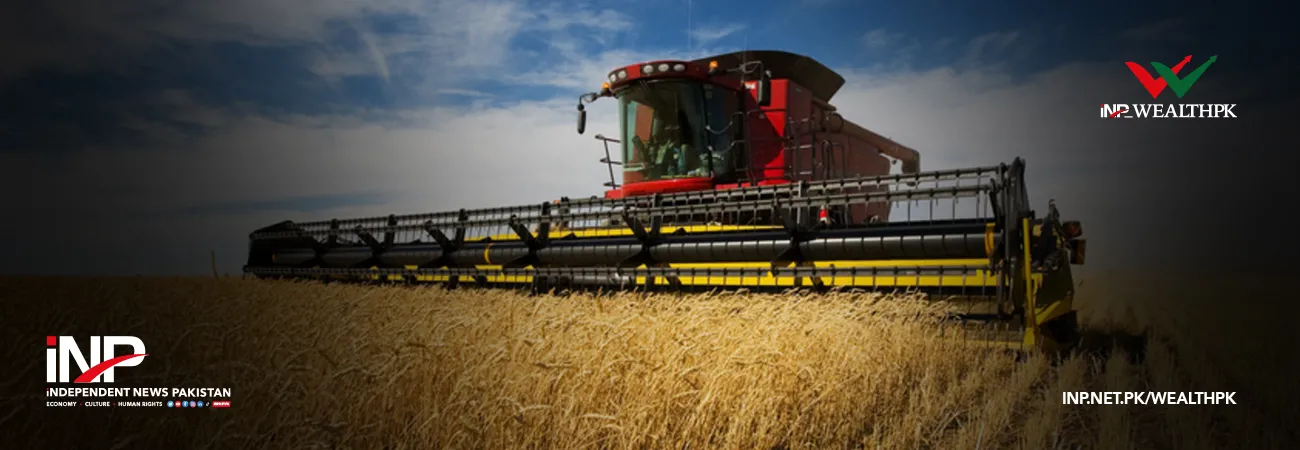INP-WealthPk
Arooj Zulfiqar
Pakistan’s agriculture sector faces numerous obstacles, including water scarcity, climate change, outdated farming practices, and limited access to the modern technology. To address these challenges and ensure sustainable growth, it is imperative to have robust agricultural evaluation mechanisms in place, Muhammad Azeem Tariq, senior scientific officer at the National Agricultural Research Centre, told WealthPK. “Lack of technical expertise and infrastructure has resulted in a reduction in the productivity of the agriculture sector, making it less competitive in the global market,” he said. “For agricultural evaluation, the government should focus on human resource and infrastructure development to provide the necessary technical skills and improve basic facilities,” he suggested. “One key aspect of agricultural evaluation is the assessment of crop yields and production efficiency. Pakistan has made commendable strides in increasing the crop yields over the years, but there is still considerable room for improvement.
By enhancing skills and knowledge, the country can optimize its crop production and ensure food security for its growing population,” he added. Azeem said there is a dire need to develop comprehensive training programs that will provide farmers, extension workers, and other stakeholders with the necessary technical skills and knowledge to improve the agricultural practices. Training programs must also emphasize the use of technology to enhance productivity and sustainable farming practices. Access to modern technology and digital tools is vital for enhancing agricultural evaluation. Capacity-building efforts should include training on the use of smartphones, data analytics, and other digital solutions that can help farmers make informed decisions, access markets, and improve their overall productivity, he said. “Water management is another critical aspect of agricultural evaluation. The country faces water scarcity issues, and efficient water usage is paramount for sustainable agriculture.
Through capacity-building initiatives, farmers can learn about modern irrigation methods, water-saving technologies, and the best practices in water management, which can lead to improved crop yields and reduced water wastage,” he said. The impact of climate change on agriculture is growing ever more serious. Unpredictable weather patterns, extreme temperatures, and changing rainfall patterns can disrupt crop cycles and production. Capacity-building programs can help farmers adapt to these changes by providing them with climate-smart agricultural practices, such as drought-resistant crop varieties and sustainable farming techniques. “In addition to on-farm activities, strengthening the capacity of agricultural research institutions, extension services, and government organizations is equally important. These organizations play a pivotal role in disseminating knowledge, conducting research, and formulating policies that shape the agricultural landscape of Pakistan,” added the NARC senior scientist.
Credit: INP-WealthPk













